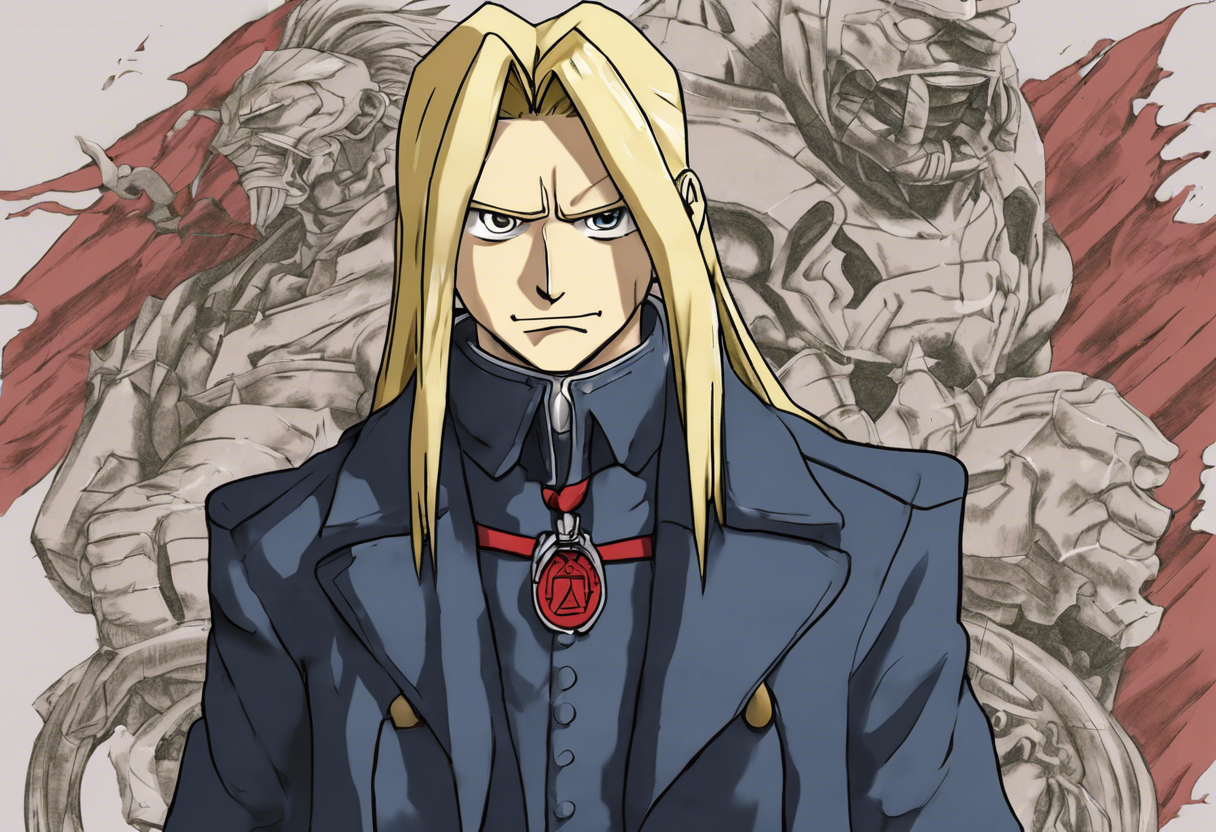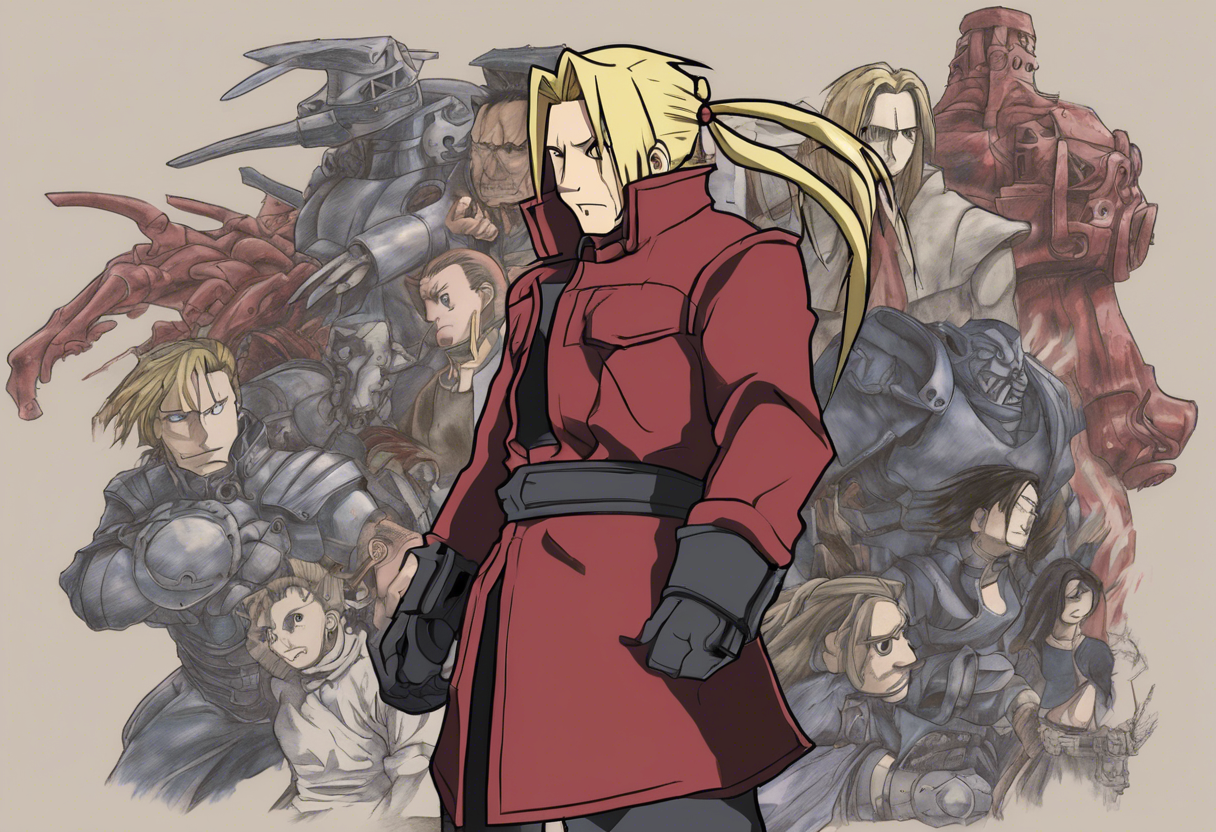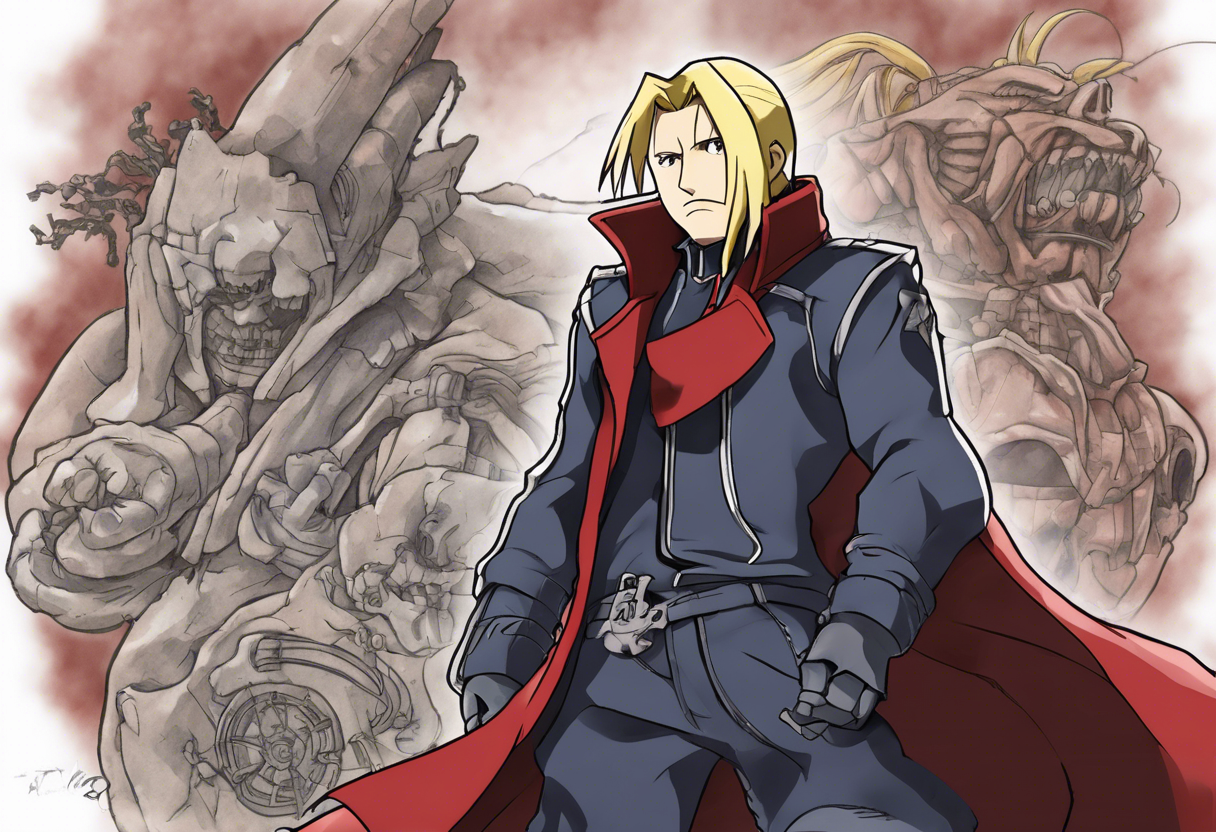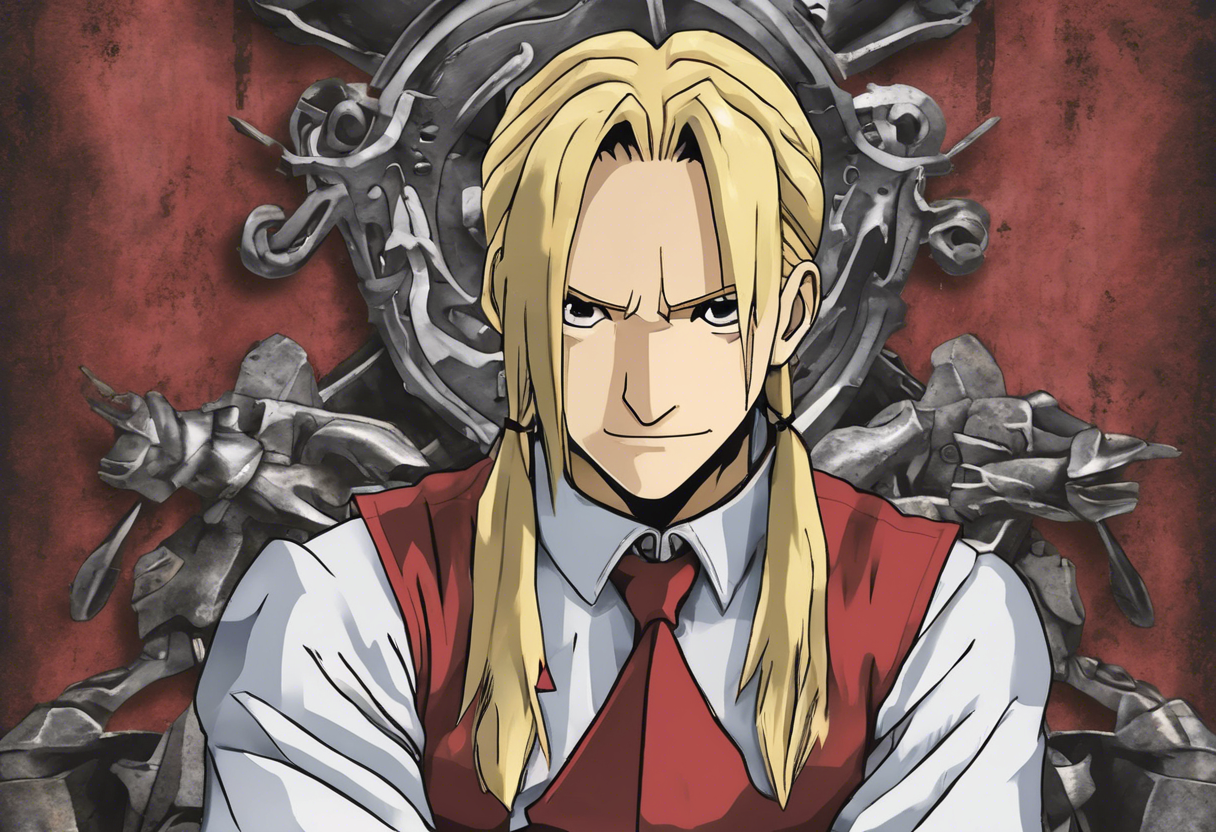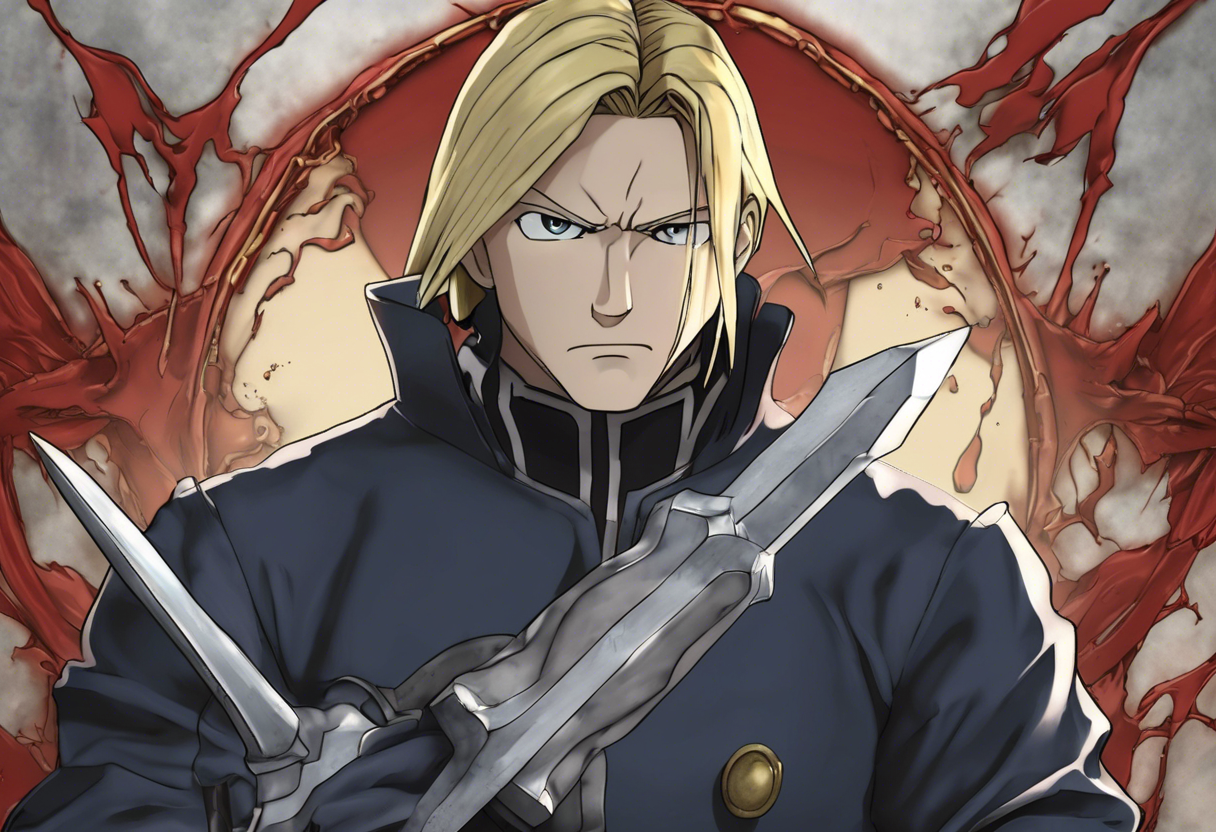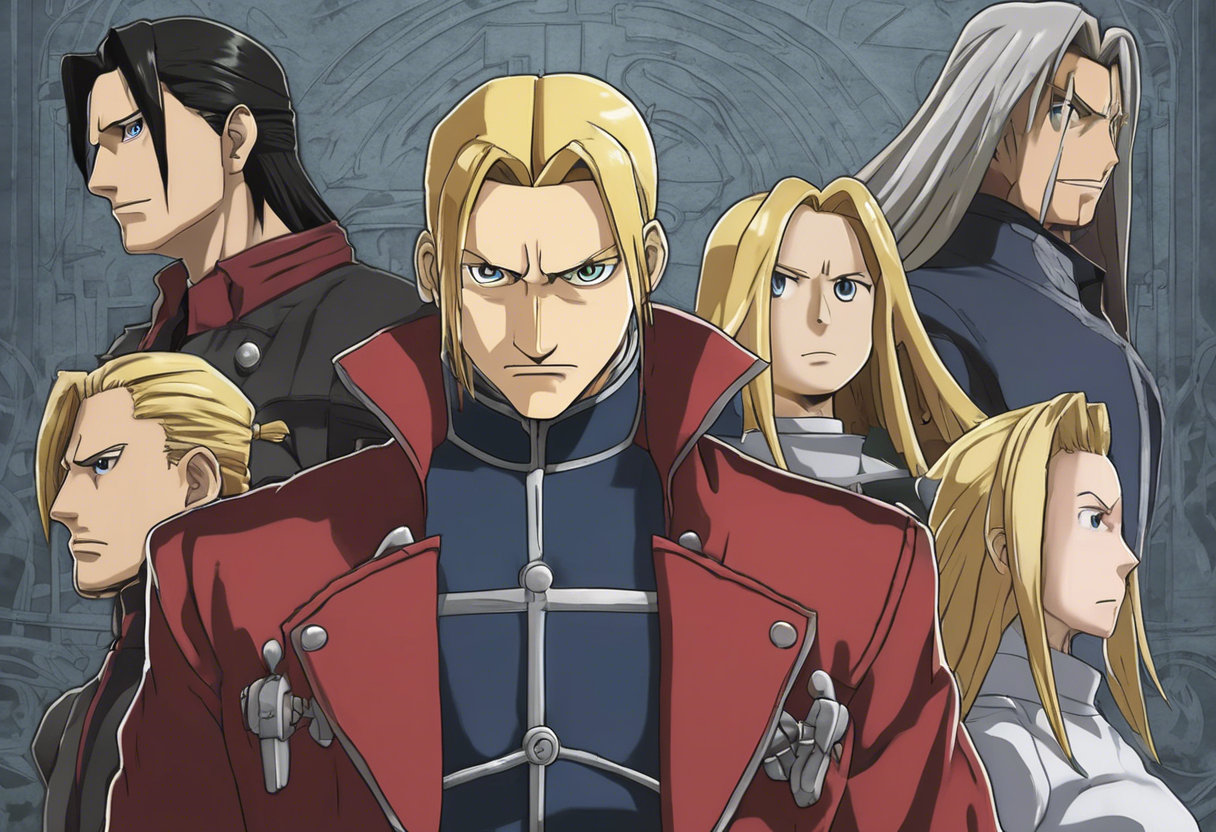Contents
Introduction
Fullmetal Alchemist, a manga series created by Hiromu Arakawa, has been adapted into several anime series, with Fullmetal Alchemist: Brotherhood being the most faithful and highly acclaimed adaptation. The original manga, published from 2001 to 2010, is set in a fictional world where alchemy is a widely practiced science, drawing inspiration from the European Industrial Revolution.
The first anime adaptation, Fullmetal Alchemist, was produced by Bones and aired from 2003 to 2004. However, due to the manga still being in its early stages, this series deviated from the original storyline midway through its run to create an anime-original narrative[2][4].
In response to the success and feedback from the first adaptation, a second anime series, Fullmetal Alchemist: Brotherhood, was conceived. Produced by Bones and directed by Yasuhiro Irie, with Hiroshi Ōnogi as the writer and Akira Senju as the composer, Brotherhood was designed to faithfully adapt the entire storyline of the original manga. Production began in 2008, and the series was broadcast from April 2009 to July 2010, consisting of 64 episodes[1][2][5].
Fullmetal Alchemist: Brotherhood stands out within its genre for its meticulous adherence to the source material, rich character development, and deep exploration of philosophical and moral themes. This faithfulness to the manga, combined with its engaging storyline and well-crafted characters, has made Brotherhood one of the most highly regarded anime series of all time.
Plot Summary
The story of Fullmetal Alchemist: Brotherhood follows the journey of two alchemist brothers, Edward and Alphonse Elric. Raised by their mother Trisha in the remote village of Resembool in the country of Amestris, the brothers show a natural affinity for alchemy from a young age. After their mother’s death, they attempt to bring her back to life using the forbidden practice of human transmutation, which results in catastrophic consequences: Edward loses his left leg and right arm, while Alphonse’s entire body is obliterated. To save his brother, Edward sacrifices his right arm and left leg to bind Alphonse’s soul to a nearby suit of armor[1][2][3].
The brothers then embark on a quest to restore their bodies by searching for the Philosopher’s Stone, a powerful alchemical artifact. Along the way, they become State Alchemists under the direction of Colonel Roy Mustang and uncover a deep government conspiracy involving the homunculi, alchemists from the neighboring nation of Xing, and the scarred man from the war-torn nation of Ishval. Their journey is marked by numerous challenges, moral dilemmas, and revelations about their own past and the true nature of alchemy[1][2][3].
Key events include their encounters with various characters such as Winry Rockbell, who provides them with automail prosthetics; Izumi Curtis, their alchemy teacher; and Father, the main antagonist who has lived for centuries and is central to the plot’s unfolding. The series culminates in a dramatic finale that resolves the brothers’ quest and the larger conspiracy, providing a satisfying conclusion to the narrative[1][2][3].
Themes and Symbolism
Fullmetal Alchemist: Brotherhood is renowned for its rich thematic content and symbolic elements. One of the central themes is the concept of the Law of Equivalent Exchange, which states that to gain something, one must sacrifice something of equal value. This principle is not only a rule of alchemy but also a metaphor for life, highlighting the consequences of one’s actions and the value of sacrifice[2].
The series also explores themes of redemption, the nature of humanity, and the dangers of playing God. The characters’ experiences with human transmutation serve as a cautionary tale about the limits of science and the importance of respecting the natural order. Additionally, the homunculi, beings created through alchemy, represent various human vices and serve as foils to the human characters, further exploring what it means to be human[1][2][5].
Symbolism is deeply embedded in the narrative, with characters like Truth, a pantheistic and semi-cerebral God-like being, representing the ultimate authority and regulator of alchemy. The Philosopher’s Stone itself is a symbol of the ultimate goal and the sacrifices one must make to achieve it. The series also uses historical and cultural references, such as the Ishvalan War, to explore themes of war, genocide, and the consequences of nationalism[1][2].
Cultural Impact
Fullmetal Alchemist: Brotherhood has had a significant cultural impact since its release. The series has been widely acclaimed and is often cited as one of the best anime series of all time. Its influence extends beyond the anime community, with references in various forms of media, including other anime, manga, and even live-action films[2].
The manga itself has sold over 80 million copies worldwide, making it one of the best-selling manga series ever. It has received several awards, including the 49th Shogakukan Manga Award for the shōnen category in 2004 and the Seiun Award for best science fiction comic in 2011[2].
The series has also spawned numerous adaptations, including two feature-length anime films, Fullmetal Alchemist the Movie: Conqueror of Shamballa and Fullmetal Alchemist: The Sacred Star of Milos, as well as live-action films released in 2017 and 2022. These adaptations further attest to the series’ enduring popularity and its ability to transcend different media formats[2].
Critical Reception
Fullmetal Alchemist: Brotherhood received widespread critical acclaim upon its release. Reviewers praised its faithfulness to the manga, the introduction of characters and plot details not present in the 2003 anime, and the climactic episodes for their action scenes and moral messages[1][5].
The series is noted for its well-developed characters, particularly the depth and complexity of characters like Greed and Hohenheim, who evolve significantly throughout the narrative. The storytelling, pacing, and character development were all lauded, with many considering it a benchmark for anime adaptations[5].
However, some critics noted minor plot points that were not fully resolved by the end of the series, which left a few questions unanswered. Despite this, the overall reception was overwhelmingly positive, with the series being hailed as a masterpiece in the world of anime[5].
Legacy
Fullmetal Alchemist: Brotherhood continues to have a lasting impact on the world of anime and beyond. It has inspired numerous filmmakers, artists, and writers, and its influence can be seen in various other anime and manga series. The series’ themes of sacrifice, redemption, and the exploration of complex moral issues have made it a staple in discussions about the medium’s potential for deep storytelling[1][2][5].
The series’ enduring relevance is also evident in its continued popularity, with new generations of fans discovering and appreciating it. Fullmetal Alchemist: Brotherhood has cemented its place in cinematic history as one of the greatest anime series ever produced, and its influence will likely be felt for years to come.
References
- https://en.wikipedia.org/wiki/Fullmetal_Alchemist:_Brotherhood
- https://en.wikipedia.org/wiki/Fullmetal_Alchemist
- https://www.cbr.com/fma-brotherhood-complete-timeline/
- https://scholarworks.uttyler.edu/cgi/viewcontent.cgi?article=1003&context=comm_grad
- https://thereviewmonster.blog/2018/08/24/fullmetal-alchemist-brotherhood-review/

